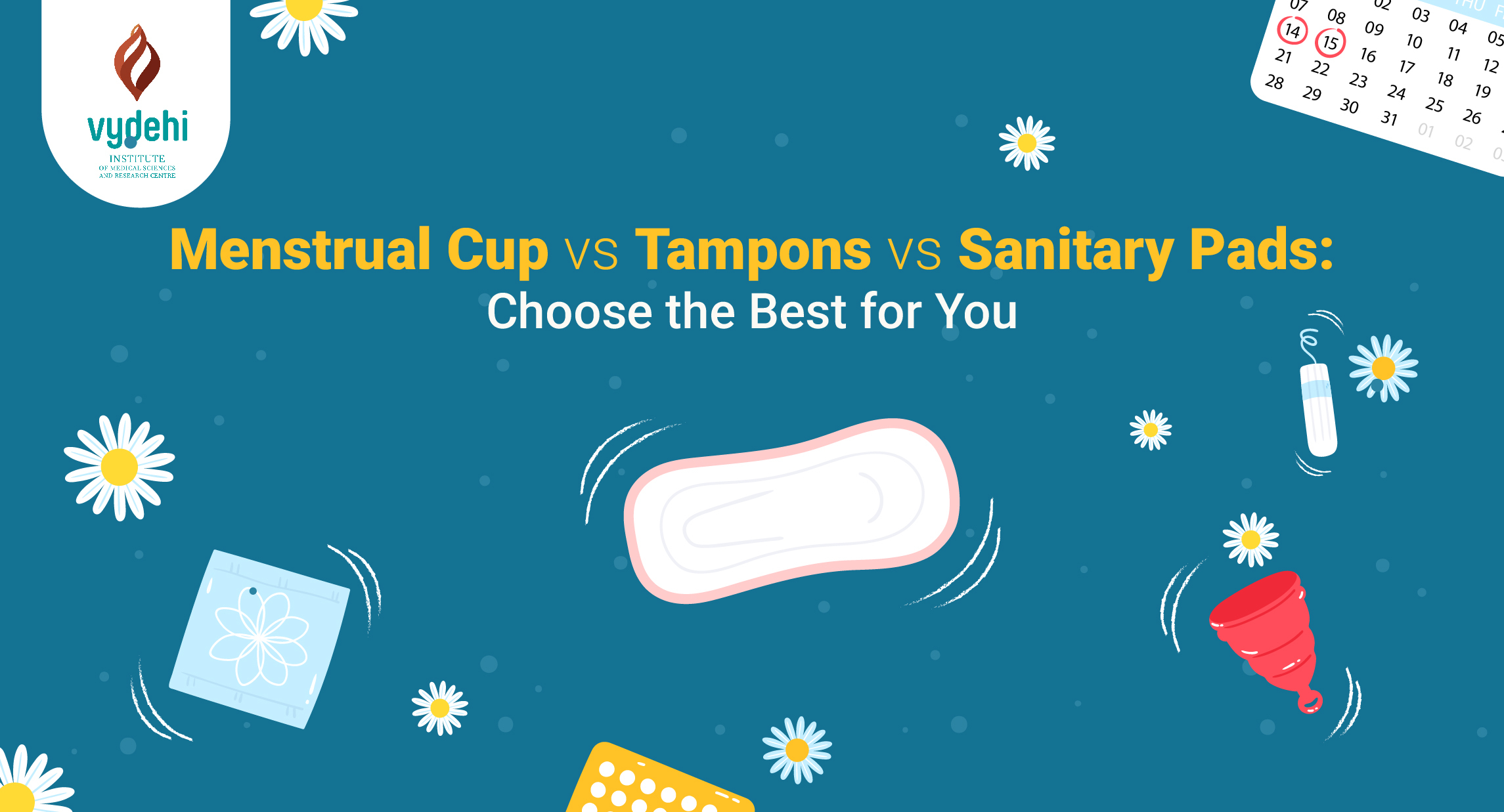

Menstrual cup vs tampons vs Sanitary Pads: Which is the best, has been a raging question for woman for their hygiene. Choosing the right product becomes important when the matter is about comfort, convenience, and most importantly safety.
Let’s have a look at the views of our gynecologist’s choice when it comes to feminine hygiene products.
In general, gynecologists opinion on menstrual cups is that they are the most safe and effective option. The material from which menstrual cups are made are generally well-tolerated and pose minimal-risk. There is either no or very less irritation and very low risk of infection when using menstrual cups. There are very minor disadvantages if any of using menstrual cups.
Tampons come second in their order of choice for feminine hygiene. In tampons vs pads, tampons are advantageous because they are better suited for intense daily activities
At the end, sanitary pads are also an effective option. It is quite comfortable and one of the best especially for those who are concerned about inserting anything. And it almost carries no risk of toxic-shock syndrome a rare but life-threatening bacterial infection.
One thing to keep in mind that the person using either of the three should consider their preference as well. Individual choices and medical conditions should be taken into consideration when choosing menstrual cup vs tampons vs sanitary pads.
The choice of feminine hygiene products is majorly influenced by the amount of physical activity they perform. For a person involved in intense physical activities like sports or exercises such as swimming, the choice becomes extremely important. Tampons, and menstrual cups are better at holding the blood for longer hours as compared to sanitary pads. Especially if a person is performing exercises like swimming both tampons and menstrual cups are a better choice.
At the end, it is all about personal choice and comfort. Some find tampons more discreet, while others consider menstrual cups as they provide a leak-proof seal.
An important point that women take care while choosing between menstrual cups, tampons, or sanitary pads is the leakage. When comparing all the three, menstrual cups are the best leak-proof product available. Although there is a common misconception that menstrual cups leak more, it happens only when the cup is not inserted properly.
While tampons are generally opted the most for being leak-proof not all might be comfortable in using the tampons. On the other hand, sanitary pads have a risk of leakage if the material used for the pads is not of good quality. Comparatively both cups or tampons offer reliable leak protection. If used correctly menstrual cups are the best leak-proof products among the three.
Now coming back to the question, which of the three menstrual cups vs tampons vs pads are the safest options for periods? Gynecologists often advise to use either of the three keeping in mind the hygiene as a priority. The order of preference as the safest options if menstrual cups, followed by tampons and then pads. But it is crucial to take into consideration the comfort and maintenance of good hygiene practices regardless of what product is being used.
There are disadvantages to the use of all three. Knowing the disadvantages apart from advantages are key to identifying which is better sanitary pads or menstrual cup or tampons for one’s own comfort. These are:
To answer the ultimate question which is safer tampons or pads or cups it is important to deliberate upon the personal preference, lifestyle and comfort. Each of the options has merits, and what goes good for one person may not be the best choice for another.
In conclusion, the choice between menstrual cups, tampons, and sanitary pads ultimately depends on individual preferences and needs. Gynecologists generally consider all three options safe when used correctly. Remember, there’s no one-size-fits-all solution.
VIMS&RC (Vydehi Institute of Medical Science & Research Center) encourages an open conversation about feminine hygiene. For more detailed information and personalized advice, consult with healthcare professionals. Your safety and comfort during your period matter, and choosing the right product is a step towards a healthier, happier you.
In the dynamic world of feminine hygiene, it’s crucial to stay informed and make choices based on your unique needs. Whether you opt for the reliability of menstrual cups, the convenience of tampons, or the familiarity of sanitary pads, the key is to prioritize your well-being.
Remember, your comfort matters, and with the right information, you can confidently navigate the choices between menstrual cup vs tampon vs sanitary pads for a safe and worry-free period experience.
The information included here is only for knowledge-sharing purposes, and the blog is not intended to be a substitute for diagnosis, medical advice, or treatment by a healthcare professional. Every individual needs advice based on diagnosis and evidence, hence the reader should consult their doctor to determine the disease and any treatment must be taken under appropriate medical guidance.


 Emergency Number
Emergency Number
What are the disadvantages of using tampons ?